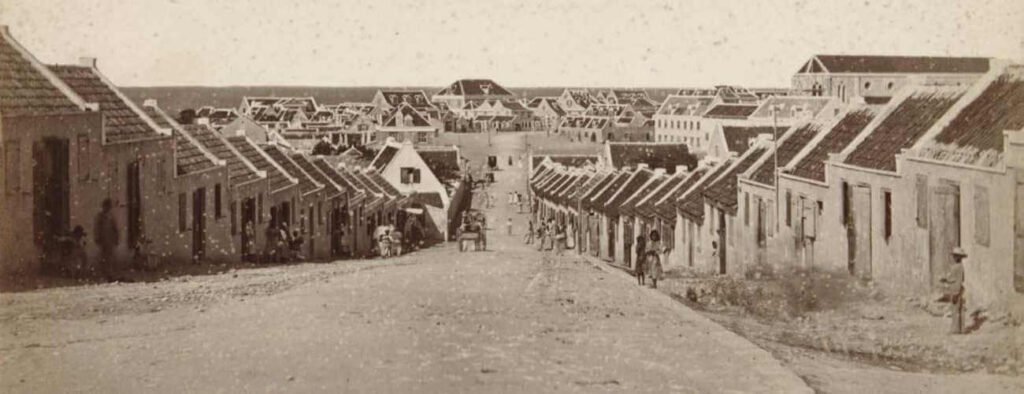
History
From 2500 BCE to the present
The Story of Curacao
2500 BCE
The first people that lived on this island were the Caquetio tribe of the Arawak people. They migrated from South America around 2500 BCE and left behind tools, pottery, and petroglyphs. The name "Curaçao" itself is believed to come from the Arawak word for "heart.”
1500
Jump to 1499, Spanish explorers, led by Alonso de Ojeda, arrived on Curaçao. They found the island too dry for large-scale agriculture, so the Spanish used Curaçao mainly as a place for cattle ranching. By 1634, however, the island's strategic location caught the attention of the Dutch, who were eager to control Caribbean trade routes.
The Dutch West India Company seized Curaçao from the Spanish and quickly transformed it into a hub of commerce. Willemstad, the island’s capital, was founded soon after, evolving into a bustling port city. The deep natural harbor, known as Schottegat, became the center of trade, leading Curaçao to become one of the most important centers of commerce in the Caribbean.
1800
During the 17th and 18th centuries, Curaçao's location made it a focal point in the Atlantic Slave Trade. The Dutch West India Company used the island as a main slave trading center miving enslaved Africans throughout the Caribbean and the Americas.
In Willemstad’s Punda and Otrobanda you can see the architectural buildings from this era, with colorful Dutch colonial buildings lining the harborfront.
1900
In the 19th century, Curaçao faced economic challenges as the abolition of slavery in 1863 led to significant changes. The island’s economy shifted focus, first to salt mining and later to the oil industry. In the early 20th century, the discovery of oil off the coast of Venezuela brought new era. The Royal Dutch Shell refinery became one of the world’s largest, turning Curaçao into a vital refueling station during World War II.
After World War II, Curaçao and the other Dutch Caribbean islands formed the Netherlands Antilles with a measure of self-governance.
2000
In 2010, a significant milestone was reached when Curaçao became an autonomous country within the Kingdom of the Netherlands, sharing this status with Aruba, Sint Maarten, and the European Netherlands.
Post COVID, the oil industry has all but left the island due to the geo-politics in Venesuela. Tourism, however, has become a major part of the economy, with visitors drawn not only by Curaçao’s beautiful beaches, coral reefs and the amazing Cliff Villa :) but also by its lively cultural festivals, such as Carnival and the Tumba Festival.
Festivals
Explore the magic


